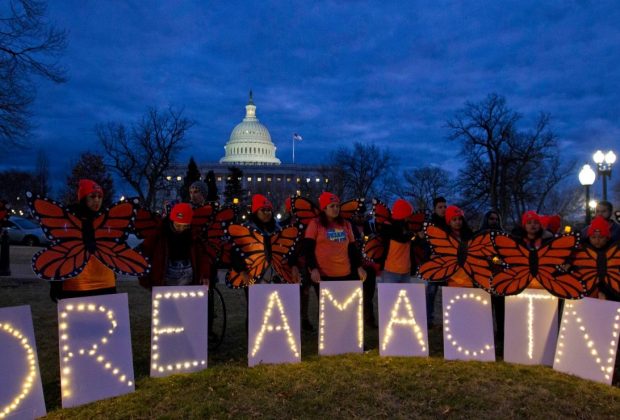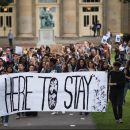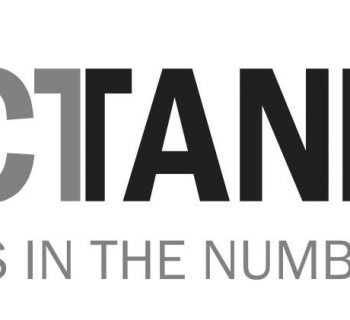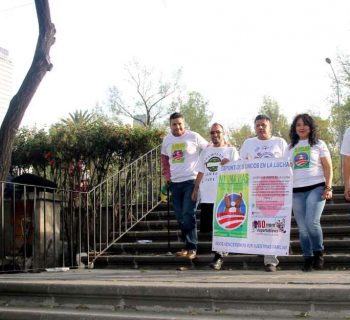What new federal guidance on streamlining the 212(d)(3) waiver means for businesses
By FWD.us Editor | FWD.us | AUG 13, 2024 | Photo Courtesy of Jose Luis Magana
On June 18, 2024, the Departments of State and Homeland Security announced new actions to streamline the immigration process for U.S. employers to sponsor certain immigrants, including DACA recipients and Dreamers, who have earned a degree from a U.S. college or university, for a nonimmigrant (temporary) visa.
The D-3 waiver and visa sponsorship are critical tools that can help businesses attract and retain highly educated and skilled workers, while also providing opportunity to qualified DACA recipients, Dreamers, and other immigrants, particularly in the face of ongoing legal threats to the DACA program.
This memo describes what the D-3 waiver is and how it can help your business sponsor a foreign-born employee for a nonimmigrant work visa.
What is the D-3 waiver?
The D-3 waiver allows certain undocumented immigrants who qualify for a work visa and have a U.S. employer sponsor to leave the U.S. and return with legal status to work in that job.
D-3 waivers are needed because undocumented immigrants seeking visas generally need to leave the U.S. and go through processing abroad; however, if the individual is subject to any “inadmissibilities” described in immigration law, their visa can be denied. For example, immigrants who have lived in the U.S. without status for some period of time may be barred from re-entering the U.S. for up to a decade.
Under section 212(d)(3)(A) of immigration law, those inadmissibilities can be waived if the immigrant’s admission to the U.S. would not be contrary to U.S. interests. While applying at a U.S. consulate or embassy abroad, a State Department officer can recommend the individual for a waiver, which is then adjudicated by Customs and Border Patrol (CBP). If CBP approves, the inadmissibilities are waived and the individual can receive their visa and return to the U.S.
The D-3 waiver is a critical tool for expediting the immigration process for hiring. Unfortunately, it has been underutilized because prior guidance was vague and processing could take many months, putting a valued employee at risk of being stuck outside of the country for a long time. That is why the State Department has issued new guidance to clarify and expedite certain D-3 waiver requests.
What are the new policies?
In July 2024, the State Department published new guidance for consular officers in its Foreign Affairs Manual.
The updated guidance plainly asserts that waivers for individuals who have earned a degree at a U.S. college or university, or who have earned necessary credentials to engage in skilled work in the U.S., are in the public interest, and that these requests should be prioritized for expedited processing.
The updated guidance clarifies certain situations in which a consular officer should recommend a waiver; these updates do not guarantee a waiver will be recommended, nor do they change the eligibility for the waiver, CBP’s discretion in granting or denying, or the overall eligibility requirements for the visa itself. Leaving the U.S. always carries risks, particularly for individuals who are currently undocumented. The goal of the updated guidance is to provide more certainty and a streamlined process for individuals and employers who are considering this process
Why should businesses utilize the D-3 waiver to support current and future employees?
Some of your current employees—as well as employees you may hope to hire in the future—might qualify for an employment-based visa, such as an H-1B “specialty occupation” visa or an O-1 “exceptional ability” visa. Sponsoring them for a visa will allow you to employ them legally in the U.S., and to potentially sponsor them for a permanent immigration status in the future.
This is particularly important if you employ or seek to employ individuals who have work authorization through DACA, which faces significant legal challenges and could end within the next two years. A work visa is a more stable and predictable status that could protect DACA employees from disruptions to their work authorization, or the possibility that it could be ended altogether. The D-3 waiver can also be used to sponsor other undocumented individuals, including Dreamers who never received DACA.
How do I get started with visa sponsorship and D-3 waivers?
As an employer, you should convene your HR, mobility, and other relevant teams to determine what visa sponsorship options you are open to offering for current employees and future applicants. It’s important to communicate what benefits and sponsorships your company offers to employees and invite them to come forward if they believe they are eligible.
If you are interested in sponsoring an employee, the next step is to engage a trusted immigration attorney. Immigration law and visa programs are incredibly complex, and an individual’s personal immigration history may preclude them from accessing certain avenues. A legal consultation with a qualified attorney is necessary to determine the best available options.
Immigration attorneys can help you understand the various visa options that might apply to an employee. You can work with your immigration counsel to provide legal screenings for employees to assess their eligibility and help file petitions to sponsor work visas. They can also help individuals plan their processing abroad and prepare their waiver cases, though some employees may want to retain their own counsel (which you can support).
The federal government may issue additional guidance and policy updates to further improve the employment-based visa process. Follow FWD.us (@FWDus on social media) for more updates.






